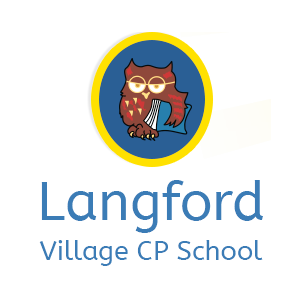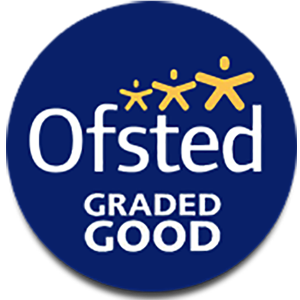




Intent
Our English curriculum ensures that children communicate their ideas effectively through speaking, listening and writing, and that they become confident in the principles of spelling. We aim for all children to develop a lifelong love of reading and, through imaginative and purposeful links across the curriculum, become passionate about their English skills, showing creativity and flair.
Writing
Writing is a crucial part of our curriculum at Langford Village Community Primary School. By the end of Year 6, we intend for all children to have developed a love of writing and to be able to express their thoughts and ideas clearly, accurately, and creatively through the written word. We aim to develop writers who can re-read, edit, and improve their work, applying the essential skills of grammar, punctuation, and spelling with confidence. At Langford, we set high expectations for all pupils, encouraging them to take pride in their work, write with a fluent, cursive handwriting style, and allow their imaginations to flourish.
Reading
Reading lies at the heart of our curriculum at Langford. We are dedicated to enabling our pupils to become fluent, confident, and enthusiastic readers who develop a lifelong love of books. We believe that reading is key to academic success and underpins learning across the curriculum.
Spoken Language
Our intention is for children to be able to express their opinions, articulate their feelings, and listen and respond appropriately in a range of contexts. We aim for all pupils to collaborate effectively with different groups of children, to present ideas with confidence while valuing the views of others, and to speak audibly and clearly before an audience during school performances, presentations, and class assemblies.
Implementation
At Langford Village CP School, our English curriculum provides pupils with a wealth of opportunities to develop their spoken language, writing and reading, all of which contribute to their wider communication skills.
English is taught daily in the Early Years Foundation Stage through Drawing Club, which excites children with the magical world of stories while enriching their language, developing fine motor skills and nurturing a love of writing. It immerses children in a world full of imagination where anything can happen - and often does.
In Key Stages 1 and 2, writing is taught through a three-week cycle towards a clear outcome:
Daily phonics sessions are taught in EYFS and KS1 through the Fisher Family Trust (FFT) Success for All Phonics programme, ensuring a consistent and effective approach to early reading and spelling. Spelling is taught daily through the Fisher Family Trust (FFT) Jungle Club programme to ensure consistency and progression in pupils’ understanding of spelling patterns and rules.
Our curriculum provides many purposeful opportunities for reading, writing and discussion. Writing is often cross-curricular and linked to class topics, using a wide variety of high-quality texts and resources - such as video clips, images and drama - to inspire ideas. The teaching of writing is purposeful, illustrating how skills can be applied to real-life contexts, with clear progression for all children. In line with the National Curriculum, each year group is taught the explicit grammar, punctuation and spelling objectives required for their age, enabling effective progression of skills, understanding and knowledge.
We ensure that our pupils:
• Acquire a wide and rich vocabulary, an understanding of grammar, and a knowledge of linguistic conventions for reading, writing and spoken language.
• Develop the habit of reading widely and often, both for pleasure and for information.
• Write clearly, accurately and coherently, adapting their language and style for a range of contexts, purposes and audiences.
• Use discussion as a tool for learning, elaborating on and explaining their understanding clearly.
• Become confident and competent in the arts of speaking and listening, making formal presentations, demonstrating to others, and participating in debate.
To develop a strong ‘reading for pleasure’ ethos across the school - and to encourage reluctant readers to build fluency and comprehension - reading for pleasure is encouraged and celebrated throughout the school. Pupils are motivated to engage with books they enjoy both in school and at home, strengthening links between school and parents. Extensive reading, both at home and in school, supports pupils’ wider progress across the curriculum.
Whole Class Reading is taught daily across the school, allowing all pupils to access high-quality texts together. These sessions provide opportunities to explore unfamiliar vocabulary, deepen comprehension, and engage in meaningful discussion about language, structure and author intent. Staff model fluent reading and correct grammar in speech, encouraging pupils to reflect this accuracy in their own spoken and written language.
Impact
The skills learnt in English lessons equip our children to be confident, effective learners in all aspects of the curriculum. As children move on from Langford Village CP School, we hope their creativity, passion for English and high aspirations travel with them, continuing to grow and develop as they do.
Writing
Pupils make good progress from their own starting points. By the end of Year 6, they are able to write clearly and accurately, adapting their language and style for a range of contexts, purposes and audiences. Our pupils acquire a wide vocabulary and have a strong command of Standard English. Most importantly, they develop a love of writing and are well equipped for the next stage of their education.
Reading
By the time children leave Langford, they are competent, confident readers who can recommend books to their peers, have a thirst for reading a range of genres -including poetry - and participate in discussions about books, evaluating an author’s use of language and its impact on the reader. They read with fluency to enhance their knowledge and understanding across the curriculum and communicate their research and ideas effectively to others.
Spoken Language
In a safe and encouraging environment, children develop into confident communicators who listen carefully, speak with kindness and empathy, and explain with clarity and confidence. They recognise that speaking and listening are powerful tools for learning, building relationships and expressing individuality.
Impact is measured through:
• Regular knowledge-check activities and teacher assessment during lessons.
• In-school attainment tracking.
• Subject leader monitoring - including lesson visits, book scrutiny, data analysis, pupil and staff interviews, and questionnaires.
• Governor monitoring.
Langford Village Community Primary School
Peregrine Way
Bicester
Oxon
OX26 6SX
Tel: 01869 369021
Email: office.2608@langford-village.oxon.sch.uk
Headteacher: Mrs Sarah Tomlin
SENCo: Mrs Laura Oliver
Paper copies or all information available on this website can be obtained from the school office free of charge